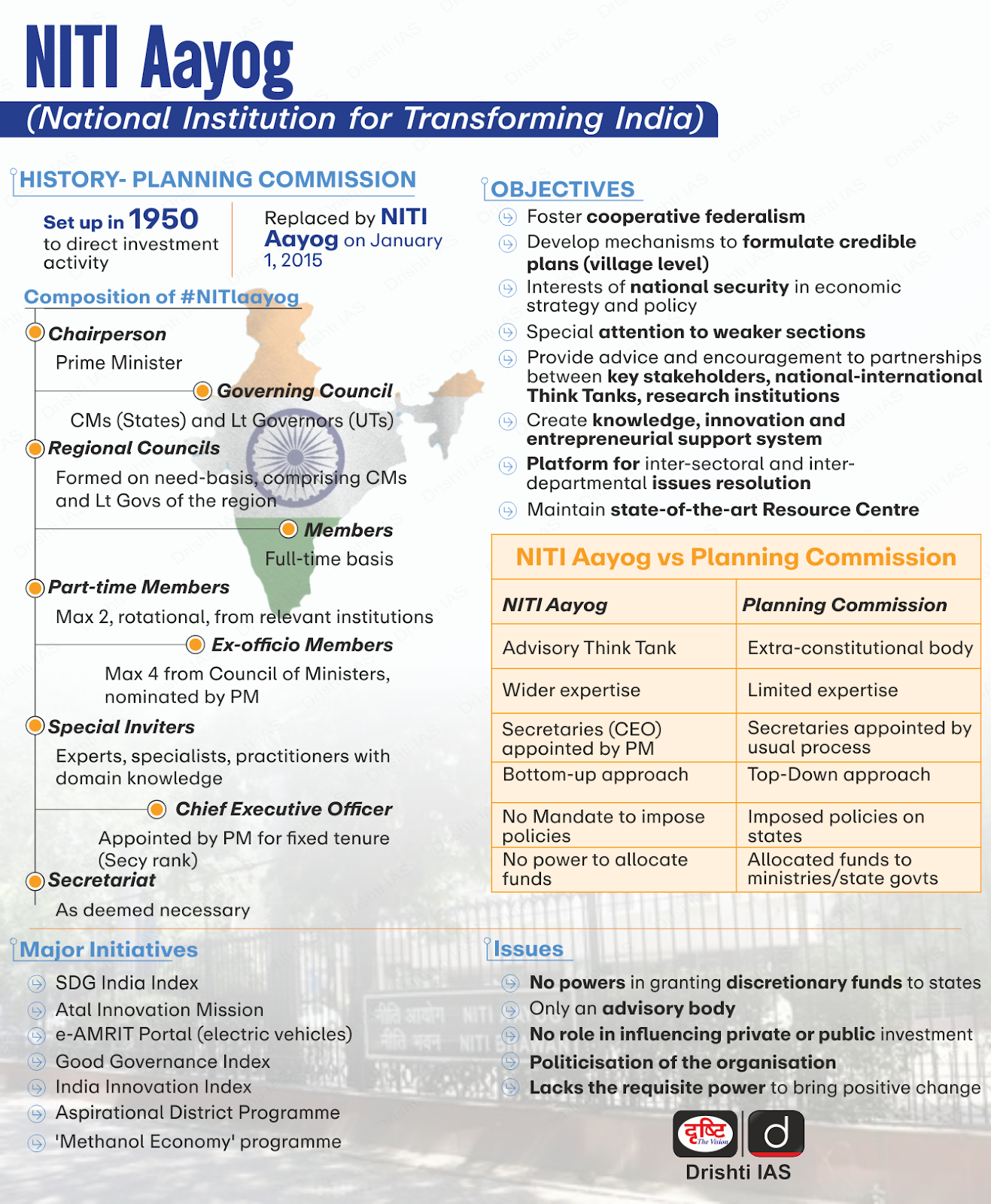Maharashtra Switch to Hindi
NITI Aayog Workshop in Pune
Why in News?
NITI Aayog, in collaboration with the Government of Maharashtra, organised a one-day workshop focused on the theme "Developing Ecosystem for Assistive Technology in India." at Yashwantrao Chavan Academy Of Development Administration(YASHADA) Pune.
Key Points
- Rising Demand for Assistive Technology in India:
- India is witnessing a growing need for assistive devices due to the increasing number of persons with disabilities, elderly individuals, and people with chronic health conditions.
- These technologies significantly improve their quality of life and play a key role in building a more inclusive and equitable society.
- India’s Potential as an AT Manufacturing Hub:
- With rapid advancements in technology and a thriving start-up ecosystem, India holds great promise to emerge as a global hub for Assistive Technology (AT) manufacturing.
- This growth can meet domestic needs while also contributing to international markets.
- Broad Participation Expected:
- The workshop will bring together around 200 participants, including senior officials from Central and State Governments, international agencies, research institutions, and AT startups.
- They will discuss the current state and future possibilities of assistive technology in the country.
- Key Themes for Discussion:
- Improving access to assistive technology in India
- State-led initiatives promoting AT
- Innovations in AT manufacturing
- Opportunities for global partnerships and collaboration
- Towards a Robust AT Ecosystem:
- Insights and recommendations from the workshop will help shape a national framework to support and expand the AT ecosystem in India.
- These efforts align with the goal of ‘leaving no one behind’ and advancing an inclusive, accessible society for all.
Assistive Technology (AT)
- AT is any item, piece of equipment, software program or product system that is used to increase, maintain or improve the functional capabilities of persons with disabilities.
- Examples:
- Technologies and devices such as prosthetics, braces, walkers, special switches, special-purpose computers, screen readers and specialised curricular software.
- Universal assistive technology coverage implies that everyone, everywhere receives the AT that they need without financial or other hardships.
- Priority Assistive Products List launched by WHO in 2018 include hearing aids, wheelchairs, communication aids, spectacles, artificial limbs, pill organisers, memory aids and other essential items for the elderly and persons with disabilities.




%20MPPCS%202025%20Desktop%20E.jpg)
%20MPPCS%202025%20Mobile%20E%20(1).jpg)






.png)
.png)











 PCS Parikshan
PCS Parikshan


